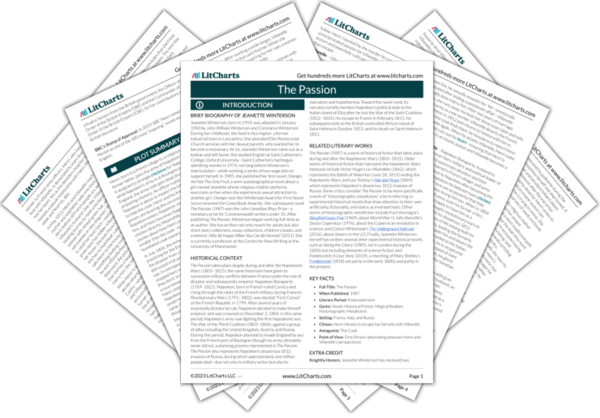The Conservative Senate was an advisory body created during the French Consulate (1799–1804), the government that ruled France after a Napoleon-led coup overthrew the French First Republic. The Conservative Senate declared Napoleon Emperor of France on May 18, 1804, but Napoleon was not officially crowned until December 2, 1804. Henri muses that the French people “wanted a ruler” despite having overthrown their previous monarch, King Louis XVI, and abolished the monarchy in 1792—a musing that suggests people have a fundamental, destructive tendency toward hero-worship. Henri’s belief that people want their hero “to rule the world,” meanwhile, suggests people have another fundamental, destructive tendency toward conquest. Meanwhile, his refusal to mention the “men who married mermaids”—that is, the drowned soldiers—shows his loyalty at this point in his life to the false story of heroic military service.


